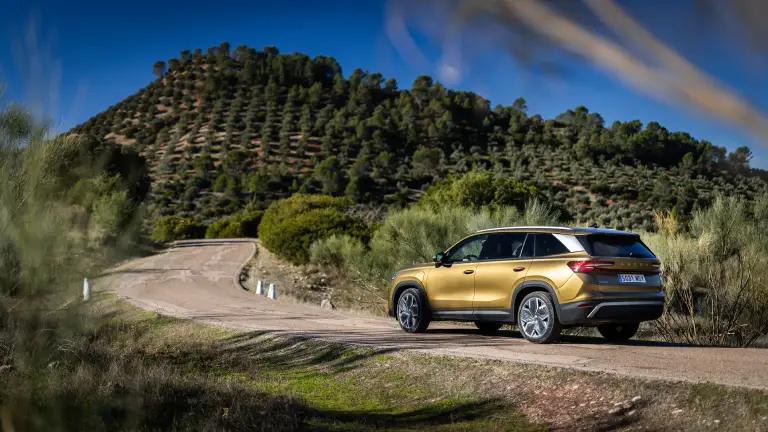“As a car manufacturer, we are aware of our responsibility towards the environment and the need to play a pioneering role in sustainability. With Curiosity Fuel coffee being grown according to Rainforest Alliance guidelines, we not only support fair and transparent practices from the planting to the final product but also embrace circular economy principles by repurposing the waste products from coffee production. What’s more, each sip of Curiosity Fuel coffee may inspire more ideas on how to reduce our environmental footprint even more effectively.”
Karsten Schnake, Škoda Auto Board Member for Procurement
Curiosity Fuel: the origin of the name and beans
By switching to Curiosity Fuel coffee at its Czech plants, Škoda Auto is highlighting the interconnectedness of the ntire value chain and fostering curiosity about new, sustainable solutions. The coffee beans come from carefully selected family farms in India and Tanzania. Curiosity Fuel is produced following Rainforest Alliance principles, reflecting adherence to socially and ecologically responsible practices and respecting nature and farmers throughout the production and delivery process. These local farms are committed to preserving biodiversity and ensuring fair treatment and proper wages for their workers.
Škoda Auto is responsible for the Indian market within the Volkswagen Group. As a socially and economically responsible employer in the country, the company plans to support a school near the plantations by improving its facilities.
This commitment to collaboration is outlined in a Memorandum of Understanding, which also ensures compliance with the Rainforest Alliance Certification for the cultivation, supply, and roasting of Curiosity Fuel coffee. The document was signed by representatives of Škoda Auto and its project partners, Jablum Czech and Neralu Plantation.
From bean to machine: Škoda Auto’s Czech plants switch to 100% Curiosity Fuel
Upon arrival in the Czech Republic, the coffee beans are processed at the Jablum family roastery in Bezděčín, Mladá Boleslav. The distribution of the coffee to the canteens, company cafés and coffee machines at the Czech plants has already begun. Starting this summer, Škoda Auto’s total annual coffee consumption at these locations – approximately 25 tonnes – will be covered by sustainable, high-quality Curiosity Fuel.
Closing the loop: the story of Curiosity Fuel goes beyond coffee
In line with circular economy principles, Škoda Auto is also using the coffee bean husks. In collaboration with its supply partner Bader, the carmaker has developed a process in which this byproduct is used for tanning the leather seat covers of the Škoda Kodiaq and Octavia models in the Suite Design Selection from summer onwards. Moreover, Škoda Auto is exploring other sustainable tanning solutions; for example, the leather for the L&K variant of the Superb is tanned using wastewater from olive processing.
Škoda considers sustainability to be a transformative process and takes a holistic approach that benefits the environment and all stakeholders. As an automaker, Škoda is committed to minimising the environmental footprint of its business activities across the entire value chain to drive sustainable growth and promote circular economy principles. This encompasses products, supply chains, production, retail, and the surrounding regions in which the company operates.
For more information, visit the project page of Škoda Auto’s sustainability presentation.





